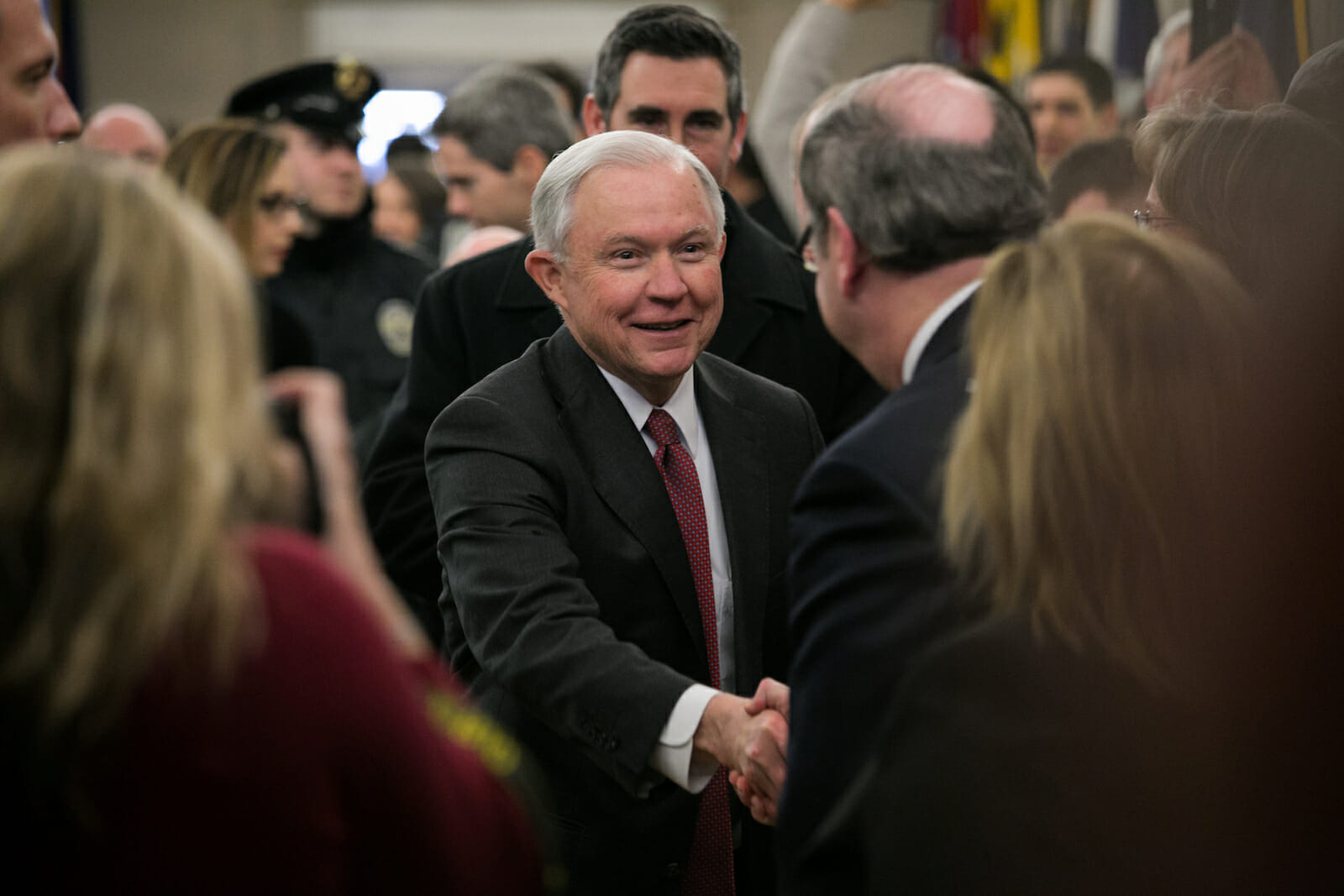
American Rights: Guns, Drugs, and the Healing Power of Common Sense
Anybody who’s seen the writing on the wall understands that coast-to-coast legal medical and recreational marijuana in the U.S. is just a matter of time. Why is the American Congress dragging their feet? Two reasons, probably.
The first reason is that some folks, like Jeff Sessions for example, still seem to genuinely believe in Reefer Madness. It’s seemingly cute in the way Mister Magoo was cute — he could destroy an entire construction site with his shenanigans, but we loved him anyway because he just didn’t seem to know any better.
But there’s real collateral damage being done too, by Jeff Sessions and by the second category of anti-marijuana politicians: folks who’ve simply been paid off by the companies that make opioids. Public servants like Paul Ryan, as well as Orrin Hatch and Bob Casey.
Obvious conflicts of interest aside, the very old-fashioned position Congress is staking out on this issue is creating a serious amount of friction and tension at the intersection of States’ Rights and Federal Law. Since this is America, one of these sources of tension unsurprisingly involves firearms.
Choosing Your Rights
Most Americans believe we need stricter gun control laws. That doesn’t mean we want to outlaw them. It doesn’t mean we want a government buyback. It means we want fewer guns getting into the hands of people who shouldn’t have them. When they’re polled, the American people declare time and time again how ready they are for stronger gun control laws. The consensus seems to grow — rather than diminish — every time one of our schools or other public places is visited by tragedy.
So, to begin with, “gun control” and “gun ownership” aren’t even debates, really. Most of us want the same things: to maintain the right to gun ownership but tightly control who gets to exercise that right. The next question is: Who are we “controlling” right now? Who are we keeping safe?
There’s a considerable and growing amount of overlap between America’s pot-using communities and its gun-owning communities. Many states have legal medical and/or recreational weed. But the federal government still classifies it as a Scheduled narcotic. And every state has gun ownership, obviously, but disagree on some of the finer points.
What this means is that there are many cases where state laws conflict with federal laws — and in some of those cases, people have to choose which rights they want to exercise and which ones they’re okay with doing without:
“I know people who are not going on [medical marijuana] because they would have to give up their guns,” Christine Roberts said, upon exiting a medical marijuana dispensary in Pennsylvania. “It’s not fair. You can get opioids and a gun. There’s more danger with opioids and guns than medical marijuana.”
Opioids Vs. Marijuana Vs. Guns
Christine Roberts is right on all counts. Opioids claim American lives by the hour, and yet there’s never been a single confirmed case of a marijuana overdose in recorded human history. Alcohol poisoning claims “only” six human souls every day, but access to alcohol is a well-recognized “right” after the age of 21 in America. Part of the problem is that there’s still a huge social stigma attached to marijuana use — even legal use.
But another big problem we’re here to discuss is how selectively we dispense some of the “rights” we talk about and debate on a daily basis. Everyday Americans should have a right to access legal weed — which doctors tend to agree holds vast medical potential — but they don’t. American voters most certainly should have the right to a Congress that isn’t bought by moneyed interests, but again, we know where the priorities currently lie — most everyday Americans will find it mind-blowingly easy to gain access to dangerously addictive opioids, even if it’s not necessarily a “right.” And everyday Americans have a right to gun ownership, even though we know that it would make sense for known criminals, domestic abusers, and others who are confirmed dangers to society to have such a right revoked.
I’ll play you the world’s smallest violin about gun rights. I’m not sure anybody has a “right” to own a deadly weapon when we all claim world peace is our ultimate goal. But I think I agree with Roberts — the situation isn’t “fair” at all. Not when human lives are in the mix here in so many ways.
It’s not fair when convicted criminals can go buy a gun after being released from prison. It’s not fair that gun-owning medical pot users have to walk a pointless legal tightrope while Congress gets its act together. And it’s definitely not fair that our current laws seem to consider marijuana users as somehow a danger to society.
Especially when so many real dangers are legal.
Who Benefits From State-Federal Legal Friction?
If this impasse between federal and state laws looks ridiculous to you, that’s because it is. Maybe it’s just growing pains as our country wakes up to the benefits of both medicinal and recreational pot, and our laws have some catching up to do. But from where we’re standing, it looks more than a little bit convenient — doesn’t it?
The only rights being protected here are the rights of the most profitable patients and citizens: gun owners and opioid users.
Those are both embarrassingly profitable enterprises — and lo and behold the firestorm each one has become in political circles. We can’t get real traction on opioids because Big Pharma is one of several industries that own Congress at present. We can’t get real traction on stronger gun control measures for the same reason, just with the NRA as the culprit instead.
Opioids and guns are extremely profitable. So those are the rights we prioritize.
Marijuana isn’t that profitable right now — but it’s going to be. It just won’t ever be as wildly profitable for Big Pharma as the opioid epidemic has been once people have the right to grow and cook with their own weed at home. So they’ve got Congress — and all of these possible patients, and all these legal, law-abiding gun owners — in a legal holding pattern while they figure out how to either corner the market or kill it dead for a few more years.

